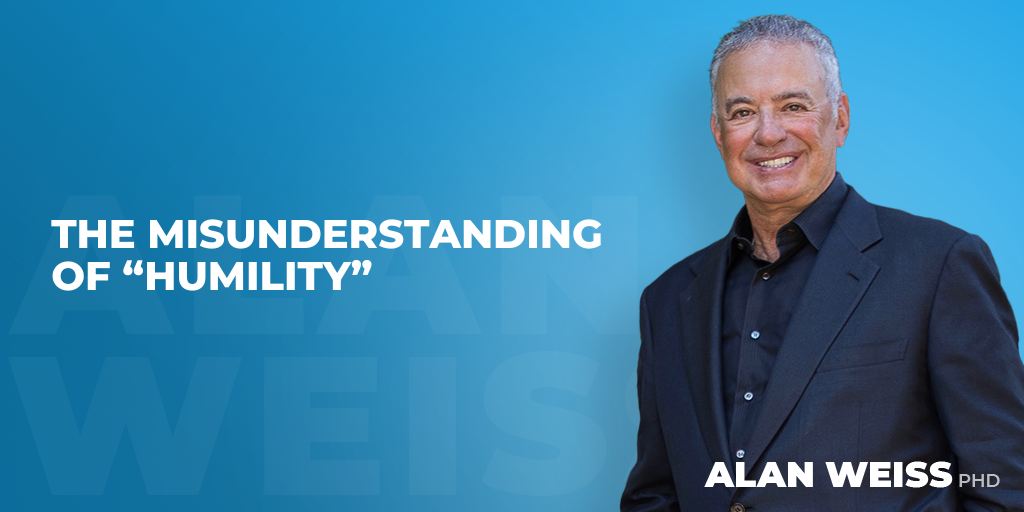Umwelt
Umwelt (oom-velt) refers to an organism’s self-life. It’s the opposite of anthropomorphism, in that we try to understand an animal’s personal point of view, rather than assigning it human points of view. Or as John Muir once explained, when asked why something as dreadful as poison ivy was even created, “Perhaps it was made for itself.” (Alexandra Horowitz talks about this brilliantly in her new book, Inside Of A Dog.
There is an umwelt in our business and social dealings which, if understood, can lead to far greater success. We tend to assign our own traits, preferences, and proclivities to those around us, and this tendency is not very successful. Sometimes called “projection,” we assign positives and negatives to others based on our own experiences and traits.
For example, if I had a hard time learning to ski and you told me you were about to take lessons, I might recommend that you never descend on a black diamond hill, because I still can’t do it and they are not for the average skier. One of my purposes in this remark is to maintain my self-identity, since if you immediately took to black diamonds like an Alpine native I might believe that I’m simply not that adept a skier (which I’m actually not). The same applies to college courses, food choices, and dating conundrums.
Personal goals are more valuable than common features and benefits
In marketing—and in merely influencing others—it’s better to investigate the umwelt. The buyer, or receiver, or important other may not respond to the same stimuli, motivators, or comforts that you do. The problem with most “features and benefits” sales approaches is that they are immersed in a commodity mindset—what one person finds attractive will surely strike others the same way. That’s blatantly false, which is why we have both Dunkin’ Donuts and Starbuck’s, and PCs and Macs.
You have to put yourself in the others' shoes. How are they likely to view the world, your offerings, your suggestions? How can you vary your approach to suit their needs, their values, their expectations, all of which may well be starkly difference from your own and even from the prior buyer?
The finest speakers, consultants, coaches, sales people, teachers, and marketers I’ve seen don’t project; they don’t “anthropomorphize” their interactions with others. Instead, they try to get inside others’ points of view, see the world and the situation through others’ eyes and with others’ personal goals in mind.
The same car will not appeal to an unmarried 25-year-old with a small rent payment, and to a couple with three children, married for ten years, with a substantial mortgage. Vacation alternatives differ, depending upon preferences for travel, ocean, cultural events, bargains, and so forth. I swear by my iPhone while others refuse to buy one, yet we all have the need for wireless communications.
Your dog is hungry, not worried
What is it that your client wants to achieve? Don’t propose a fixed, arbitrary alternative to meet those needs. Propose a more tailored approach that isn’t a commodity. Ironically, you’ll get larger sales from transactions based on meeting need without a fixed methodology than you will from a highly polished, highly rehearsed, and highly irrelevant pitch for a commodity.
To understand others’ points of view, you need to understand their world. Have you asked yourself what it’s like to be the CEO of a community bank in these times? Or what the priorities are for the vice president of nursing in a major hospital? Or what a development director in a non-profit is looking for these days in terms of alternative funding sources? Put yourself in the other person’s shoes, but also look through their eyes, hear through their ears.
This isn’t a bad technique in your personal life, as well. Your kids are not living the life you lived at an equivalent age (not unless you had a cell phone, lap top, and 7000 friends on Facebook). Your spouse has a different view of shared experiences, not better or worse, but different. Your dog isn’t licking you because he’s worried about your well being, but because you spilled a part of your lunch and/or haven’t used any breath mints.
If you want to know what the other person is thinking, and you want to gain some traction with a recommendation or proposal, then determine how he or she views the world. They may well be sailing down that black diamond hill, and your best approach is to propose an even better mountain.
© Alan Weiss 2009. All rights reserved.




Danielle Keister
Oh, this is soooo true. In my own industry, it’s amazing how often I will suggest to the folks I mentor that they talk to people in their market, get out there and pick their brains, find out what their goals, obstacles and challenges are… and they will stare at me dumbfounded. They are so busy trying to guess at these things (or worse, ask their peers for advice who too often know no better than they do) that it never occurs to them to do this.
Dorie Clark
Extremely useful advice.
Alan Weiss
Thanks!